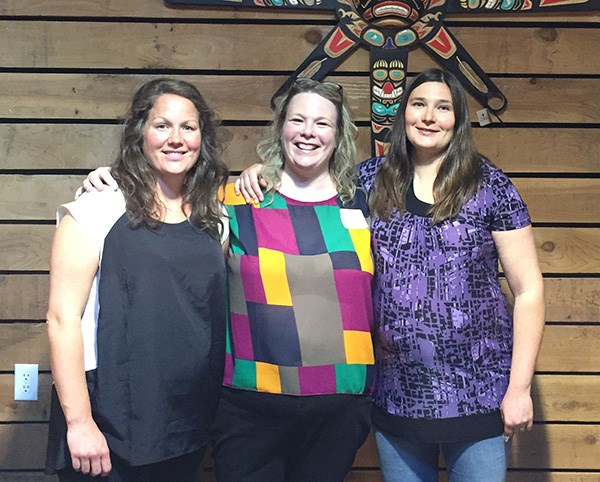When someone has a heart attack, emergency response teams know exactly what to do. There is a standard protocol that is followed and resources are readily available. But when it comes to sexual assault, there are discrepancies that many first responders find difficult.
That was the message from frontline workers of sexual assault response in the Sea to Sky corridor at a roundtable discussion held at the Squamish Lil’wat Cultural Centre in Whistler on Wednesday. The group discussed current programs in local sexual assault awareness, brainstormed ideas and tried to answer the question of what’s next for local response programs.
Shannon Cooley Herdman, community advocate and educator for sexual assault response and prevention, facilitated the event for the Howe Sound Women’s Centre Society in partnership with Mary Saugstad, an emergency nurse at the Lions Gate Hospital and nurse-clinician at Whistler Options for Sexual Health.
Saugstad spoke about her own personal experience as a victim of sexual abuse and noted that not much has changed in many years. “Anybody who has been sexually assaulted, they feel that they don’t know where to go,” she said.
At the time of her abuse, there was no help from the community, and doctors often told victims to avoid talking about it, she said.
Wendy Potter, program manager for the Ministry of Public Safety, said even with recent improvements, our society is still about 30 years behind in terms of where it should be in dealing with sexual assault.
“It feels like things are still the same,” Saugstad agreed. “And that’s why I want to get involved in this community and see how we can improve things for others.”
According to Statistics Canada, of 460,000 sexual assaults annually in Canada, only 15,000 are reported to police, and of those reported, less than one per cent of cases actually go to trial.
A new forensic program in Squamish allows survivors to undergo a sexual assault exam – otherwise known as a rape kit – at the hospital if they choose, which can then be passed on to police and investigators at the victim’s discretion. With the written consent of the victim, police can seize the forensic exam evidence. Until last December, victims had to travel to Vancouver for the rape kit exam.
“For myself, it was not important, the forensic part,” said Saugstad. “I never charged the person. For me it was more the emotional support, which I luckily got from my family. I think that’s the most important. And it’s different for every person.”
Saugstad said lack of training and funding for forensic clinics could lead nurses to feel overwhelmed by the emotional trauma they experience vicariously through their patients.
“There’s a fear of nurses just not feeling competent enough, which will probably be a challenge here in Squamish and the Sea to Sky. The most successful forensic clinics have at least 10 nurses on call, so everyone gets a break.”
Another gap that needs to be acted on, said Cooley Herdman, is the lack of a sexual assault protocol across the corridor.
Local sexual assault services allow victims to receive comfort and have their physical needs attended, but the protocol must also include the next steps in the process like emotional support and systemic guidance, she said.
The event facilitators are hopeful that another roundtable discussion will take place in the fall. “We can report back to each other what initiatives we’ve undertook in our own agencies or communities or nations to work on advancing sexual assault response and prevention on the corridor,” said Cooley Herdman.



